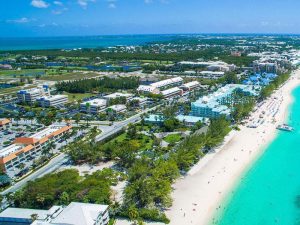Caribbean Safety Guide
The Caribbean is the ideal destination for tourists due to its beaches clear waters and lush rainforests. However, it’s essential to be aware of the safety risks before traveling to any island in the Caribbean.
Crime in the Caribbean
Crime rates vary across the islands but petty theft is a common occurrence throughout the region. It’s crucial to keep your belongings close to you at all times, and avoid walking alone during nighttime hours. If you’re renting a car, ensure that no valuables are left visible inside. In case you encounter a criminal, it’s advisable not to resist but to cooperate with the perpetrator and report the incident promptly to authorities.
In addition to crime concerns the Caribbean is also susceptible to hazards like hurricanes, earthquakes, and tsunamis. Staying informed about weather conditions and having an emergency plan in place is of vital importance. Food safety can also be an issue in some developed countries within the region, therefore it’s recommended to dine at reputable restaurants and refrain from consuming street food.
Mosquito-borne diseases such as dengue fever are also prevalent in the Caribbean so protect yourself by applying insect repellent. Wear sleeved clothing as well as pants during evening hours.
Tips to Ensure Your Safety While in the Caribbean
Stay alert – Take precautions to safeguard your belongings. Keep your wallet and phone in your pockets, avoid wearing jewelry, and be cautious when using ATMs.
It’s advisable not to carry your passport with you at all times. Instead, store it securely in the hotel or apartment safe whenever possible. Remember not to bring it along when heading to the beach! If you have no choice but to carry it, conceal it under your clothing. The combination of sweat, humidity, and water can cause damage that may render it invalid.
Avoid walking during nighttime in unfamiliar areas. If you must walk alone at night, stick to lit streets. Steer clear of parks or secluded locations. Never leave valuables inside your car unattended. If you absolutely need to leave valuables behind lock them securely in the trunk or glovebox.
Make copies of documents such as your passport, driver’s license, and credit cards. Keep one copy at home with a trusted friend or family member. Carry another copy separate from the originals while traveling.
Consider purchasing travel insurance, for added peace of mind during your trip. It’s important to have protection in case you lose your luggage encounter emergencies or face unexpected situations.
Take note that Hurricane Season occurs from June to November, so stay updated on weather conditions. Have an emergency plan in place: know the evacuation shelters and have a way to contact your loved ones if you get separated. Don’t forget to register your travel plans with the US State Department as it can help them locate you during emergencies.
Respect local customs and traditions by dressing and refraining from public displays of affection. It would also be helpful to learn a few phrases in the language as it demonstrates respect and aids in communication with locals if needed.
If you plan to dive, swim, or snorkel be cautious of currents and tides. Avoid swimming in areas known for currents and remember to apply sunscreen, wear protective clothing, and stay hydrated. For hiking activities, wear the right shoes and clothing, and remember to carry water and snacks for the trip. It’s also important to be mindful of the potential, for encountering wildlife and take steps to prevent insect bites.
Sex in the Caribbean
Additionally, it’s worth noting that transmitted diseases (STDs) are prevalent in the region. To protect yourself it’s essential to use condoms and avoid engaging in unsafe activities with multiple partners. If you identify as LGBTQ+ it’s important to be aware that while same-sex relationships may be legal in some nations, there can still be hostility towards the LGBTQ+ community in some countries. Even simple acts like holding hands or kissing could attract negative attention.
It’s illegal to engage in homosexuality in Antigua and Barbuda, Barbados, Dominica, Grenada, Guyana, Jamaica, Saint Lucia, Saint Kitts and Nevis Saint Vincent and the Grenadines. However, St. Barts, St. Croix, St. Martin, and Puerto Rico are considered LGBTQ+ -friendly islands.
The safest Caribbean Islands are Anguilla, Antigua and Barbuda, Aruba, Barbados, Cayman Islands, British Virgin Islands, US Virgin Islands, Saint Kitts and Nevis, Saint Lucia, and Montserrat.
By following the recommendations mentioned above you can reduce the likelihood of falling victim to crime or injury during your travels in the Caribbean. Stay aware of your surroundings at all times, safeguard your belongings, and show respect for local customs and traditions.




